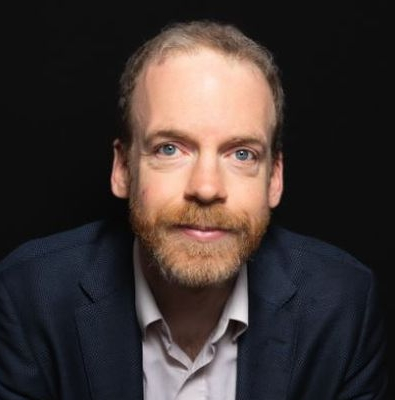As part of the Letters Live #ReadALetter campaign, Mark Taubert read out this letter to Keith Cass, a former patient of his. He wrote to him about DNACPR forms—a topic that has re-emerged during the covid-19 pandemic. You can see the video of Mark reading the letter here
 Dear Keith,
Dear Keith,
It’s been a year since you died, and I think this whole covid-19 pandemic situation would not have impressed you very much.
I was lucky enough to be part of the last years of your life, looking after you as your palliative care doctor. Your jokes and warped sense of humour are still very much with me—I can hear your voice and your laugh as though I’d just seen you yesterday. Strange, isn’t it?
Why am I writing these words to you? Well, one of our favourite topics, something that was close to your heart (if you’ll pardon the pun), has been making headlines: do not attempt cardiopulmonary resuscitation or “DNACPR” forms. I thought of you when I saw it talked about on the news last week in relation to covid-19. You were kind enough to write about our very own DNACPR and advance care planning conversations in The BMJ, in an article that went viral. You became quite a strong advocate of these forms and, more importantly, the conversations around them in light of your advanced cancer—something I think you were quite surprised about yourself.
Initially, when I brought up the topic with you in our clinic, you were a bit taken aback: you said that of course you’d want full CPR, you were living life to the full, despite your very advanced cancer. “Sign me up for full CPR,” is what you said. But the more we talked about it, and the more you learnt about the actual success rates of CPR in people with lots of underlying health conditions like cancer, the more you wanted to opt out of it, and the more you saw a need to be very clear about those views. You became a firm advocate of the TalkCPR video resources we have set up in Wales, which try to bring this topic to closer attention for people who are seriously ill.
Yes, this vexed topic has come up again, after a GP surgery in Wales sent out letters to its patients who were at highest risk, suggesting that they should consider the option of opting out of CPR, especially in light of covid-19. Understandably, it made a lot of the people who received the letter very frightened indeed.
Yet I feel that this letter, sent by a GP who has since apologised, was really written out of concern and a deeper understanding of what these most extreme treatments in medicine can actually do to our bodies, with such limited success. I wish you had been there for some of these frightened patients, to help explain in your own light hearted but intelligent way that opting out of one treatment like CPR, does not mean that lots of other treatments are not still available too. This is a topic that is deserving of individualised, personal conversations, not blanket approaches.
You had the DNACPR form with you at all times during the last year of your life: during chemo, during the research trials you took part in, and even while having radiotherapy. You joked that the form didn’t make you die any more quickly, but that it meant the people around you knew your wishes, and had them clearly set out in writing. And then you took a flight to Barbados, which you didn’t tell me about, in between chemotherapy cycles, and you say you showed the stewardess your Welsh DNACPR form (that I had signed) and asked whether it might be valid in Barbados, please? You said they nearly had a heart attack, and so did I when you told me this later!
Whether this topic is something we as people can talk about, or countenance, openly, I think really depends on the individual. Doctors and nurses sometimes feel quite guilty and anxious when they bring it up, but they do so because they have seen so many situations where CPR was given by default, and it all felt so terribly wrong. I have had relatives phone me up years later, asking why full blown CPR was given to their dying husband or wife, and whether it could not have been prevented.
Covid-19 has brought all of us closer to understanding how precious life is, but it’s also made me and other healthcare colleagues think more about our own end. I’ve actually filled in an advance decision to refuse treatment, and I’m 45. These conversations are hard and not for everyone. You thought doctors and nurses needed to bring it up more, not less, and you felt patients should bring it up with their healthcare teams and own families/friends far more. I’m grateful for all you did to raise this issue.
Keith, as you would have been at pains to point out, we all need to be better at letting those around us know what we’d want, and what we would not want, when we become too unwell to talk for ourselves.
Take care, wherever you are my friend. I can picture you in my mind, right now, and you are holding up a cold drink on a beach in Barbados. Smiling.
Mark Taubert is a consultant in palliative medicine and honorary senior lecturer for Cardiff University School of Medicine. He is strategic lead for advance care planning in Wales. Twitter @DrMarkTaubert
Competing interests: None declared.
